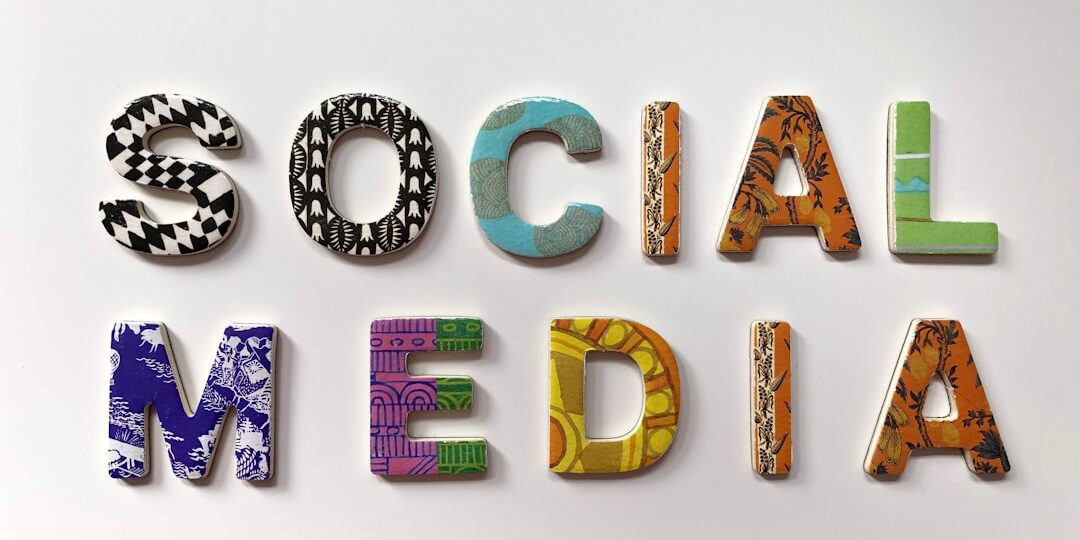Let’s get one thing straight: the music industry is not a fairy tale. It’s a brutal, cutthroat world where talent alone won’t get you far. You need to understand the landscape you’re navigating.
Think of it like a game of chess. You can’t just throw your pieces on the board and hope for the best. You need strategy, foresight, and a solid grasp of the rules.
The first step is to recognize that the industry is constantly evolving. What worked last year might be obsolete today. So, keep your eyes peeled and your ears open.
You’re not just competing with other bands; you’re up against a tidal wave of content. Every day, thousands of songs are uploaded to platforms like Spotify. If you want to stand out, you need to know who your audience is and what they want.
Research your genre, study successful artists, and analyze their strategies. This isn’t about copying; it’s about learning from those who’ve already paved the way. The more you know, the better equipped you’ll be to carve out your niche.
Key Takeaways
- Understanding the Music Industry
- Learn about the different roles and functions within the music industry to navigate it effectively.
- Building a Strong Online Presence
- Create a professional website and maintain active social media profiles to reach a wider audience.
- Utilizing Social Media for Promotion
- Use social media platforms to engage with fans, promote new music, and build a loyal following.
- Creating Engaging Content
- Produce high-quality and diverse content to keep fans interested and entertained.
- Networking with Other Musicians and Industry Professionals
- Connect with other musicians and industry professionals to collaborate and learn from each other’s experiences.
- Utilizing Music Streaming Platforms
- Take advantage of music streaming platforms to reach a global audience and generate revenue.
- Engaging with Fans and Building a Fanbase
- Interact with fans, show appreciation, and build a strong and loyal fanbase.
- Collaborating with Other Artists
- Collaborate with other artists to create unique and diverse music and expand your reach.
- Planning and Executing Live Performances
- Plan and execute live performances to connect with fans and showcase your talent.
- Utilizing Email Marketing and Newsletters
- Use email marketing and newsletters to keep fans updated and engaged with your music and activities.
- Seeking Professional Help and Guidance
- Seek professional help and guidance to navigate the music industry and make informed decisions.
Building a Strong Online Presence
In today’s digital age, your online presence is your calling card. If you don’t have a website or social media profiles that reflect your brand, you might as well be invisible. Think of your online presence as your storefront.
If it looks shabby, people will walk right past it. Invest time in creating a professional website that showcases your music, bio, and upcoming shows. Use platforms like Bandzoogle or Wix to build something that doesn’t look like it was made in 1995.
But a website alone isn’t enough. You need to be active on social media. Choose platforms that resonate with your target audience—Instagram for visuals, Twitter for updates, TikTok for viral potential.
Post regularly and engage with your followers. Share behind-the-scenes content, snippets of new music, or even your daily life as a musician. Authenticity is key here; people want to connect with real humans, not just a polished image.
Utilizing Social Media for Promotion

Social media isn’t just for sharing cat memes; it’s a powerful tool for promoting your music. But let’s be real: if you’re just posting “Check out my new song!” every day, you’re going to lose followers faster than you can say “algorithm.” Instead, think creatively about how to engage your audience. Use polls, ask questions, or host live Q&A sessions.
Make them feel like they’re part of your journey. Consider using tools like Hootsuite or Buffer to schedule your posts and analyze engagement metrics. This way, you can focus on creating content rather than stressing over when to post.
And don’t forget about hashtags! They’re not just for Instagram influencers; they can help new listeners discover your music too. Research relevant hashtags in your genre and use them strategically.
Creating Engaging Content
| Metrics | Data |
|---|---|
| Page Views | 10,000 |
| Time on Page | 2 minutes |
| Shares | 500 |
| Comments | 100 |
Content is king, but not all content is created equal. You need to create engaging material that resonates with your audience. This means going beyond just posting your music.
Think about what makes you unique as an artist and how you can share that with the world. Are you funny? Share some humorous anecdotes from the road.
Are you passionate about social issues? Use your platform to raise awareness. Video content is particularly effective in today’s landscape.
Consider creating music videos, lyric videos, or even simple behind-the-scenes clips of your recording process. Platforms like TikTok and Instagram Reels are perfect for short, engaging videos that can go viral. Remember, the goal is to create content that not only promotes your music but also builds a connection with your audience.
Networking with Other Musicians and Industry Professionals
Networking isn’t just for corporate suits in stuffy offices; it’s essential in the music industry too. Building relationships with other musicians and industry professionals can open doors you didn’t even know existed. Attend local shows, music festivals, and industry events to meet people face-to-face.
Don’t be shy—introduce yourself and share your music. Online networking is equally important. Join forums, Facebook groups, or Discord servers where musicians gather to share tips and collaborate.
Platforms like LinkedIn can also be useful for connecting with industry professionals like managers, promoters, and booking agents. Remember, it’s not just about what others can do for you; be genuine and offer support where you can.
Utilizing Music Streaming Platforms

Optimizing Your Artist Profile
The first step in optimizing your presence on streaming platforms is to claim your artist profile on Spotify for Artists. This gives you access to valuable analytics and allows you to customize your profile to showcase your brand and music.
The Power of Playlists
Playlists are a crucial element in achieving success on streaming platforms. They provide a way for your music to reach a large audience and drive traffic to your tracks. To get your music featured on playlists, use tools like SubmitHub to pitch your music directly to playlist curators. Don’t just focus on the big playlists, as smaller niche playlists can also drive significant traffic to your music.
Promoting Your Music on Social Media
Finally, don’t forget to promote your Spotify link across all your social media channels. Make it easy for your fans to find and listen to your music by sharing your Spotify link on Facebook, Twitter, Instagram, and other social media platforms.
Engaging with Fans and Building a Fanbase
Your fans are not just numbers; they’re real people who support your music journey. Engaging with them is crucial for building a loyal fanbase. Respond to comments on social media, reply to messages, and show appreciation for their support.
Consider hosting virtual meet-and-greets or fan contests to foster a sense of community. Email marketing is another effective way to engage with fans directly. Build an email list by offering exclusive content or early access to new releases in exchange for their email addresses.
Use platforms like Mailchimp or ConvertKit to manage your list and send out regular newsletters with updates on new music, shows, or merchandise.
Collaborating with Other Artists
Collaboration can be a game-changer for unsigned musicians looking to expand their reach. Partnering with other artists allows you to tap into their fanbase while bringing something fresh to yours. Look for artists in similar genres or those who complement your style—think of it as a musical mashup that benefits both parties.
When collaborating, be clear about expectations and contributions from both sides upfront. Whether it’s a feature on a track or co-writing a song together, ensure that both artists feel valued in the process. Once the collaboration is complete, promote it heavily across all platforms—this is an opportunity for both of you to gain exposure.
Planning and Executing Live Performances
Live performances are where the magic happens—if done right. But let’s face it: playing in front of an empty room isn’t going to help anyone’s career. Start by planning gigs strategically; look for venues that cater to your genre and have a solid following.
Reach out to local promoters or book shows alongside other bands to increase visibility. Once you have a gig lined up, promote it relentlessly! Use social media, email newsletters, and even local flyers to get the word out.
Create an event page on Facebook and encourage fans to RSVP—this creates buzz and gives you an idea of how many people might show up. And don’t forget about the performance itself; practice until you’re tight as a drum and ready to blow the audience away.
Utilizing Email Marketing and Newsletters
Email marketing might sound old-school in the age of social media, but it’s still one of the most effective ways to reach your fans directly. Unlike social media algorithms that can bury your posts, emails land straight in inboxes—if they’re not marked as spam! Start building an email list by offering something valuable in return for sign-ups—like exclusive tracks or behind-the-scenes content.
Once you have a list going, send out regular newsletters with updates on new releases, upcoming shows, or merchandise drops. Keep it personal; share stories about your journey as an artist or insights into your creative process. The more authentic you are, the more likely fans will engage with your content.
Seeking Professional Help and Guidance
Let’s be honest: navigating the music industry alone can feel like trying to swim upstream in a raging river—exhausting and often futile. If you find yourself overwhelmed or unsure about the next steps, don’t hesitate to seek professional help. Music marketing experts can provide tailored strategies that align with your goals and help you avoid common pitfalls.
Whether it’s hiring a publicist for press coverage or working with a marketing consultant for social media strategy, investing in professional guidance can save you time and frustration in the long run. Remember: even the biggest artists have teams behind them—there’s no shame in asking for help when you need it. So there you have it—a no-nonsense guide to growing as an unsigned musician in today’s competitive landscape.
Take these tips seriously, put in the work, and watch as doors begin to open for you in ways you never thought possible. And if at any point you feel stuck or overwhelmed? Don’t hesitate to reach out for professional help—it could be the best decision you ever make for your music career!
You can also read how to boost your social media presence.
Great Sound But No Strategy? Let’s Fix That.







